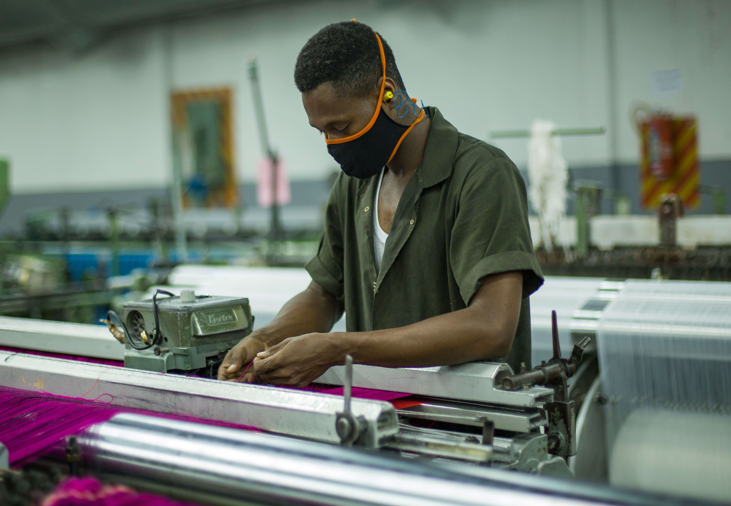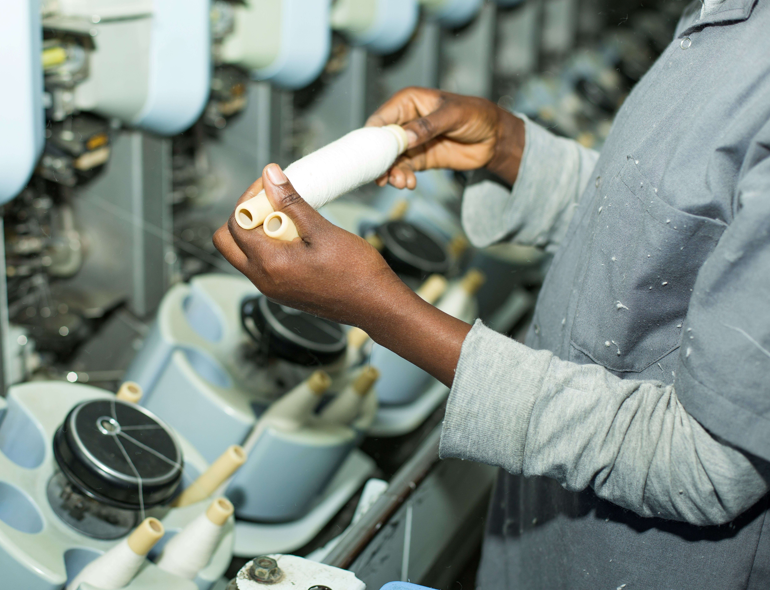
Africa’s cotton industry is projected to reach a value of $7.7 billion by 2029.
This represents a significant opportunity for the continent to accelerate economic growth, particularly in West African countries such as Benin, Mali, Burkina Faso and Côte d'Ivoire, which boast the necessary climate, crop yield and supply chain infrastructure that makes them the continent’s leading exporters of the product.
However, given the environmental, economic, and geopolitical challenges the continent’s industry faces, it will only fully optimise this opportunity through the right approach: organic production.
A sector under strain
The challenges facing cotton production in Africa are complex and interconnected.
Climate change and biodiversity loss are already impacting crop yields and undermining the livelihoods of smallholder farmers who form the backbone of the industry.
Another major limitation lies in the continent’s heavy reliance on conventional cotton farming methods, which often depend on synthetic fertilisers and pesticides.
These chemicals degrade the soil, pollute water sources and reduce long-term agricultural productivity. What’s more, the environmental costs ripple far beyond the farms, damaging local communities and biodiversity.
Meanwhile, countries like Lesotho – one of Africa’s other prominent producers – have suffered under global trade volatility, including being hit with a punitive tariff imposed by Trump, which was the highest of any nation prior to the more recent escalation of the trade war between the US and China.
These challenges highlight the vulnerability of the cotton industry in Africa and, in turn, the need for more resilient, sustainable approaches to production.

The potential of organic cotton
Transitioning to certified organic cotton presents a viable solution, both environmentally and economically because it goes beyond just the cultivation process; it incorporates sustainability across the entire value chain, from raw fibre to finished textile.
In uncertified supply chains where cotton is produced and processed, environmentally damaging and economically inefficient methods are rife. One particularly concerning phase is wet processing – bleaching, dyeing, printing, and finishing – which is among the most polluting stages of textile production.
This phase frequently involves toxic chemicals, excessive water use, and high energy consumption, which negatively impact the industry’s bottom line. In regions where environmental and labour oversight is limited, these practices can result in hazardous working conditions and severe water pollution, as untreated wastewater contaminates local ecosystems.
To address these harms and create long-term value, the industry must shift to more responsible practices governed by stringent environmental and social standards. This transition is critical not only for reducing ecological impacts but also for ensuring the health and safety of farmers and garment workers. Sustainable growth must account for people and planet alike.

Building an ecosystem for change with credibility
Unlocking the potential of organic cotton in Africa will require strong, coordinated collaboration. Governments, fashion brands, producers, manufacturers, farmers, and non-profits all have vital roles to play in enabling the transition to more widespread organic cotton production and long-term sustainable growth.
At the heart of this transition must be a strong commitment to transparency and credibility. As global demand for sustainable materials continues to grow, so too does the risk of greenwashing. Without rigorous verification, sustainability claims can lose trust and damage the market.
This is where certification plays a crucial role. By adhering to trusted international standards like the Global Organic Textile Standard (GOTS), African producers can demonstrate the authenticity of their practices and strengthen buyer confidence, ultimately enabling them to access the fast-growing premium markets that value organic cotton.
Transparent supply chains – backed by third-party verification – will be essential for unlocking the full value of organic cotton and ensuring that sustainability claims are meaningful and verifiable.
A call to action ahead of Africa Day
As we approach Africa Day, the African cotton industry has a timely opportunity to reimagine its role in shaping a greener global textile economy. Organic cotton production is more than a series of sustainable processes – it is a strategy for inclusive and resilient growth and one that can only be implanted through the collaboration and buy-in of African governments, fashion brands sourcing locally, international standards, development agencies, and farming communities.
By investing in training, certification, and environmental standards, Africa can empower its cotton industry, establishing itself as a key industry leader that sets a wider standard for sustainable cotton production.
Muktar Dodo, GOTS Representative in Africa











